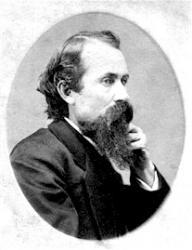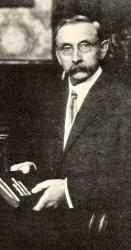
1820 - 1905 Person Name: Mary A. Kidder Author of "The Christian's Welcome Home" in Praise for the Lord (Expanded Edition) Used pseudonym: Minnie Waters
==========
Mary Ann Pepper Kidder USA 1820-1905. Born at Boston, MA, she was a poet, writing from an early age. She went blind at age 16, but miraculously recovered her sight the following year. She was a member of the Methodist Episcopal Church. In 1844 she married Ellis Usher Kidder, a music publisher, working for the firm founded by his brother, Andrew, and they had three children: Mary Frances, Edward, and Walter. That year they moved to Charlestown, MA, and in 1857 to New York City. When the American Civil War broke out, Ellis enlisted in the 4th Regiment as a private. Mustered in for two years of service, he died of disease in 1862, six days after participating in the Battle of Antietam. Left alone, with three children to care for, her writing hobby became a much needed source of income. She began writing short stories, poems, and articles and submitting them to various magazines and newspapers. For over 25 years she wrote a poem each week to the New York Ledger and others to the Waverly Magazine and New York Fireside Companion. She also frequently contributed to the New York Weekly, Demorest’s Monthly, and Packard’s Monthly. It was estimated that she earned over $80,000 from her verse. She lost two of her children when Walter drowned while swimming, and 18 years later, her daughter, Mary Frances, a talented sketch artist, died of heart disease. Mary Ann was active in the temperance movement and one of the first members of the Sorosis club, a women’s club. She loved children and animals. Her daughter-in-law described her as gentle, patient, always serene, and a good listener. She was fiercely independent and refused to lean on others for support, mentally or materially. Mary Ann lived for 46 years in New York City. She is said to have written 1000+ hymn lyrics. She died at Chelsea, MA, at the home of her brother, Daniel, having lived there two years. It is said that her jet-black hair never turned gray, which was a real grief to her, as she longed for that in advancing age.
John Perry
===========
Kidder, Mary Ann, née Pepper, who was born in Boston, Massachusetts, March 16, 1820, is the author of "Lord, I care not for riches" (Name in the Book of Life desired), and "We shall sleep, but not for ever" (Hope of the Resurrection), both of which are in I. D. Sankey's Sacred Songs & Solos, 1878.
--John Julian, Dictionary of Hymnology, Appendix, Part II (1907)
=====================
Kidder, Mary Ann, née Pepper, p. 1576, i. Mrs. Kidder died at Chelsea, Mass., Nov. 25, 1905. She was a member of the Methodist Episcopal Church, and resided for 46 years in New York City.
--John Julian, Dictionary of Hymnology, New Supplement (1907)
M. A. Kidder




